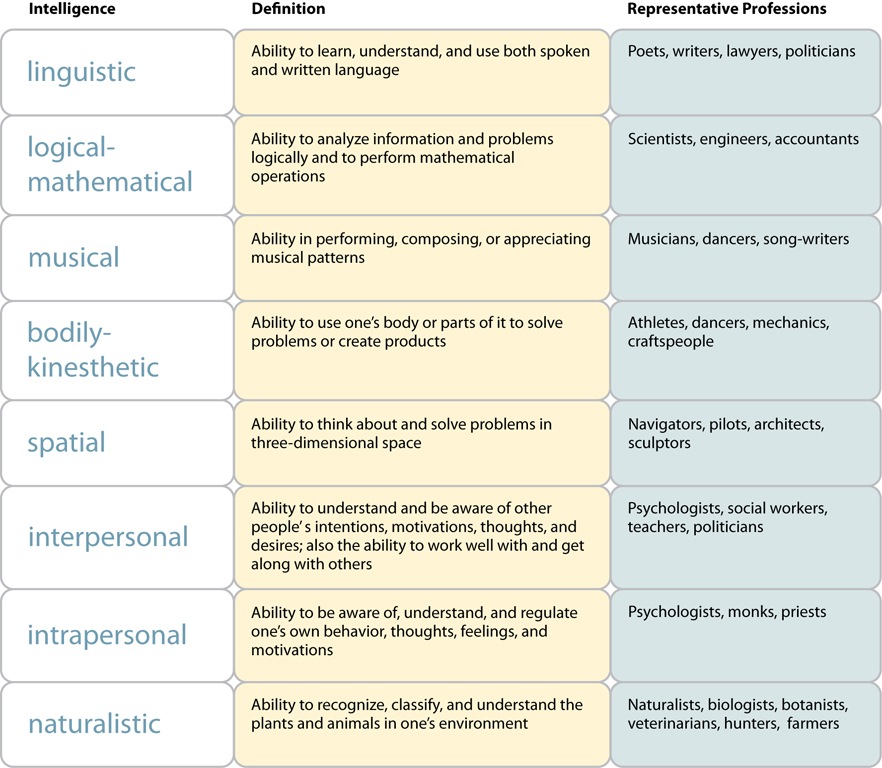Contemporary Theories: Robert Sternberg and Howard Gardner
|
Click here for a visual explanation of Sternberg's triarchic theory of intelligence. |
In the mid-1980s, Yale psychologist Robert Sternberg proposed a triarchic theory of intelligence that includes a much broader range of skills and abilities. He refers to these skills and abilities as successful intelligence or elements needed to succeed in life. According to this theory, intelligence consists of three overarching aspects. Analytic intelligence involves judging, evaluating, or comparing and contrasting information such as IQ tests. Practical intelligence is the ability to solve problems of everyday life and creative intelligence involves solving novel problems and coming up with novel solutions to problems. Intelligent people, according to Sternberg, are adept at making the most of their strengths and compensating for their weaknesses. |
|
|
Psychologist Howard Gardner of Harvard University has suggested that we have multiple intelligences, each relatively independent of others. Specifically, he considers intelligence to include eight distinct capacities or spheres. Gardner suggests that these separate intelligences do not operate in isolation. Normally, any activity encompasses several kinds of intelligence working together. Gardner's model has led to a number of advances in our understanding of the nature of intelligence. The eight intelligences identified by Gardner include linguistic intelligence, mathematical-logical intelligence, spatial intelligence, bodily-kinesthetic intelligence, musical intelligence, interpersonal intelligence, intrapersonal intelligence, and naturalistic intelligence.
|
|
Critics of Gardner's multiple intelligence theory argue that there is not a lot of empirical research testing Gardner's theory. Educators, on the other hand, believe that Gardner's theory addresses the fact that different students learn in different ways and that some students demonstrate ability to perform well in some areas even though they do poorly on IQ tests. |
For an interview with Gardner explaining his theory in his own words, click here. |
return to top | previous page | next page
